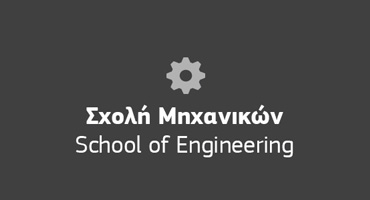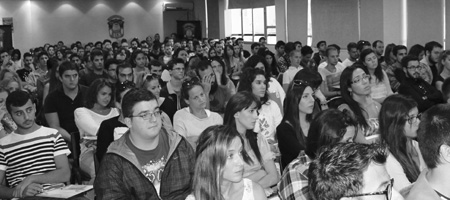





MSc Marine Engineering
Course Information
The MSc in Marine Engineering, offered by Mediterranean College in collaboration with the University of Derby, is a rigorous postgraduate programme designed to meet the growing demands of the global maritime industry. Greece, being one of the world’s leading maritime nations, presents a unique setting for advanced study in marine engineering, with access to one of the most significant commercial fleets and ports in Europe.
This programme develops advanced knowledge and applied technical skills across key areas of marine engineering such as marine propulsion systems, computational fluid dynamics, internal combustion engines, and environmental sustainability. Students are equipped to address the sector’s most pressing challenges, including the need for greener technologies, compliance with international maritime regulations, and the adoption of digital innovations in ship design and operations.
Through a research-driven curriculum and strong links with the marine industry, graduates will emerge as highly skilled professionals prepared for both onboard and shore-based roles, contributing meaningfully to the transformation and decarbonisation of the maritime sector.
What will you study?
The programme combines theoretical foundations with practical skills in modern marine engineering. You will explore:
- Advanced Marine Propulsion Systems: Study modern and sustainable propulsion technologies, including diesel, gas turbine, hybrid and nuclear systems.
- Computational Fluid Dynamics (CFD): Gain the ability to numerically simulate and optimise complex flow fields around marine structures and vessels.
- Applied Internal Combustion Engines: Delve into the thermoscience and design of internal combustion engines, with a focus on performance, emissions, and fuel types.
- Vibrations and Structural Dynamics: Learn how to analyse, model and control vibrations in marine machinery to improve safety and operational efficiency.
- Optional Modules: Tailor your learning with subjects such as Hydrogen Technologies, Environmental Impact & Regulations for the Shipping Industry, and CPD & Strategic Management.
- Independent Scholarship (Dissertation): Conduct a major research project, aligned with your interests and career goals, under the supervision of experienced academics and industry mentors.
Why choose this course?
- Industry-Relevant Curriculum: Designed in consultation with maritime professionals and aligned with international standards, this MSc equips graduates with cutting-edge technical and analytical skills.
- Location Advantage: Study in Athens, a global hub of the shipping industry, with strong links to local and international marine organisations and access to real-world case studies and expert networks.
- Sustainability Focus: Address the critical environmental challenges facing the maritime sector, including decarbonisation, alternative fuels, and IMO compliance.
- Flexible Study Modes: Available full-time or part-time, allowing students to balance professional commitments while advancing their qualifications.
- Career Prospects: Graduates are well-positioned for roles such as marine engineer, propulsion systems analyst, CFD specialist, or project manager in shipping companies, shipyards, classification societies, or regulatory bodies.
The MSc in Marine Engineering delivers a comprehensive and cutting-edge curriculum across core areas of marine systems, propulsion, thermosciences, and sustainability. The programme structure integrates theoretical understanding, applied engineering skills, and advanced computational tools.
Core Modules
Computational Fluid Dynamics (20 credits)
Learn to simulate and analyse complex flow phenomena using numerical methods and CFD tools such as MATLAB and OpenFOAM. You will explore the Navier–Stokes equations, flow stability, turbulence, and how to optimise designs through simulation.
Advanced Marine Propulsion Systems (20 credits)
Gain in-depth knowledge of modern propulsion technologies including diesel, gas turbines, nuclear, hybrid-electric, and emerging low-emission systems. You'll study performance optimisation, regulatory frameworks (IMO, MARPOL), and environmental impacts.
Vibrations (20 credits)
Understand how mechanical vibrations affect the safety and performance of marine systems. Topics include free and forced vibration, damping, resonance, and advanced analysis using FEM and modal techniques. Real-world case studies and tools such as ANSYS and Simulink are used.
Applied Internal Combustion Engines (Thermoscience) (20 credits)
Explore combustion theory, fuel-air dynamics, thermodynamic cycles (Otto, Diesel), and emissions control. Compare SI and CI engines and analyse design elements like turbocharging, fuel injection, and cooling systems relevant to marine applications.
Independent Scholarship (60 credits)
Conduct an original research project on a topic of your choice within marine engineering, supervised by academic and/or industry experts. This capstone project demonstrates your ability to apply research methodology and technical skills to solve real-world problems.
Optional Modules (Choose Two)
Environmental Impact & Regulations for the Shipping Industry (20 credits)
Analyse the environmental footprint of maritime operations and assess compliance with key international frameworks such as MARPOL and IMO climate initiatives. Explore green technologies, ballast water management, emissions control, and sustainable strategies.
Hydrogen Technologies (20 credits)
Study the production, storage, and application of hydrogen in the energy and transport sectors, including its integration with renewable energy systems. Evaluate its potential to decarbonise the marine industry and drive innovation in clean propulsion.
CPD & Strategic Management (20 credits)
Develop strategic thinking, leadership, and business planning skills tailored for the engineering sector. Topics include financial forecasting, ethical business practices, innovation management, and global industry trends.
We accept applications on a rolling basis throughout the year until all available places are filled. As this is a forward-looking and industry-driven programme in a globally strategic sector, we recommend early application to secure your spot.
We offer flexible tuition payment plans and a variety of scholarships based on academic performance, professional achievements, and socioeconomic criteria.
The MSc in Marine Engineering is also selected by numerous companies for the professional development of their staff. We offer special tuition discounts for employees of partner organisations and for group enrolments from the same company.
Contact our Admissions Office to learn more about the curriculum, tuition options, and application process. Our advisors are here to guide you step-by-step and answer any questions you may have.
Admission Requirements
The MSc in Marine Engineering is ideal for applicants who hold a university degree in Engineering, Naval Architecture, Marine Technology, Mechanical Engineering, or a closely related discipline. Candidates with other science-based qualifications may also be considered.
If you do not hold a formal academic degree but have relevant professional certifications and significant experience in the maritime or engineering sector, we still encourage you to apply. Your application will be assessed on a case-by-case basis through Accreditation of Prior Experiential or Certified Learning (RPL/RPCL).
A good command of English is essential. The required level corresponds to IELTS 6.5 (B2+) or an equivalent qualification. Applicants without a formal certificate will be invited to take the College’s English Language Placement Test.
As part of the admissions process, you will be asked to submit:
- A CV detailing your academic and professional background
- Letters of recommendation from academic tutors or employers
- Attend an academic interview with the Programme Leader to assess your suitability for the course
Graduates of the MSc in Marine Engineering hold an internationally recognised and accredited Master’s degree, professionally equivalent to those awarded by Greek Higher Education Institutions. Upon completion of the required recognition procedure by the Greek authorities, they may enjoy the full professional rights associated with their qualification.
The MSc opens up a broad spectrum of career opportunities across the global maritime sector, both onboard and ashore. As the shipping and marine industries evolve towards sustainability, digitalisation, and innovation, the demand for highly qualified marine engineers continues to grow.
You may pursue roles in ship design and operation, marine systems optimisation, propulsion innovation, regulatory compliance, and environmental impact management. Opportunities are available within shipping companies, shipyards, classification societies, marine equipment manufacturers, consulting firms, and government agencies involved in maritime affairs.
You’ll also be well-prepared for further advanced studies and academic or research-based careers in marine engineering and related disciplines.
Typical career paths include:
- Marine Engineer
- Propulsion Systems Specialist
- CFD Analyst
- Marine Sustainability Consultant
- Regulatory Compliance Officer (IMO/MARPOL)
- R&D Engineer in Marine Technology
- Technical Superintendent or Fleet Manager
- Energy Efficiency Advisor for Shipping Companies
This qualification empowers you to work globally in one of the most dynamic and strategically important industries—contributing to the future of sustainable and intelligent maritime operations.
Testimonials
My experience at the College taught me many things that will help me in my professional career. Among those things are consistency and an ethical approach to the work place. I would like to take this opportunity to thank all my tutors for the excellent work they performed, which has made my studies painless, leaving a very pleasant experience and a feeling that my efforts were worthwhile....
Diogenis Vakontios, BSc (Hons) Mechanical Engineering
An exciting period of my life came to an end. It was three unforgettable years through which I gained the necessary knowledge on the subject of Mechanical Engineering. Among the various events, visits and workshops that I attended with my classmates, in a climate of cooperation and a common purpose, I completed my studies at Mediterranean College. There was a genuine cooperation between the College staff and students, who...
Aggelos Fois, BSc (Hons) Mechanical Engineering
I'd never go anywhere else, because I would be bored, there's so much things to do as a mature student, the college is amazing, the people are great and you never get bored!...
Andreas Lazarides, BSc (Hons) in Civil Engineering




